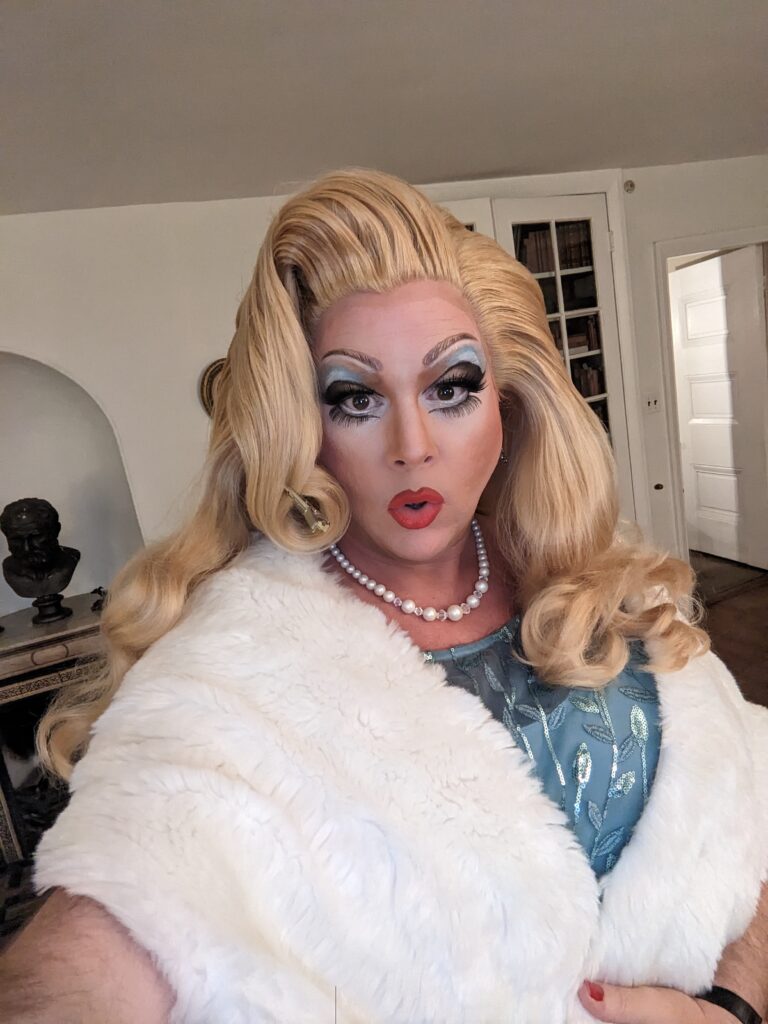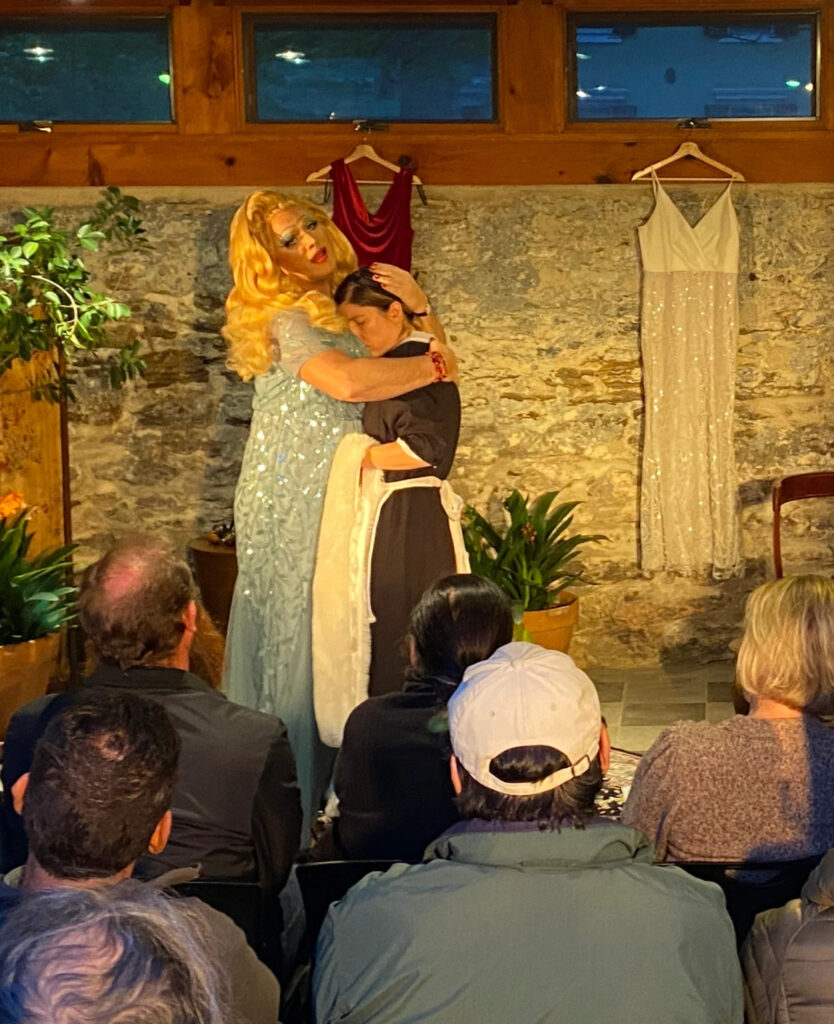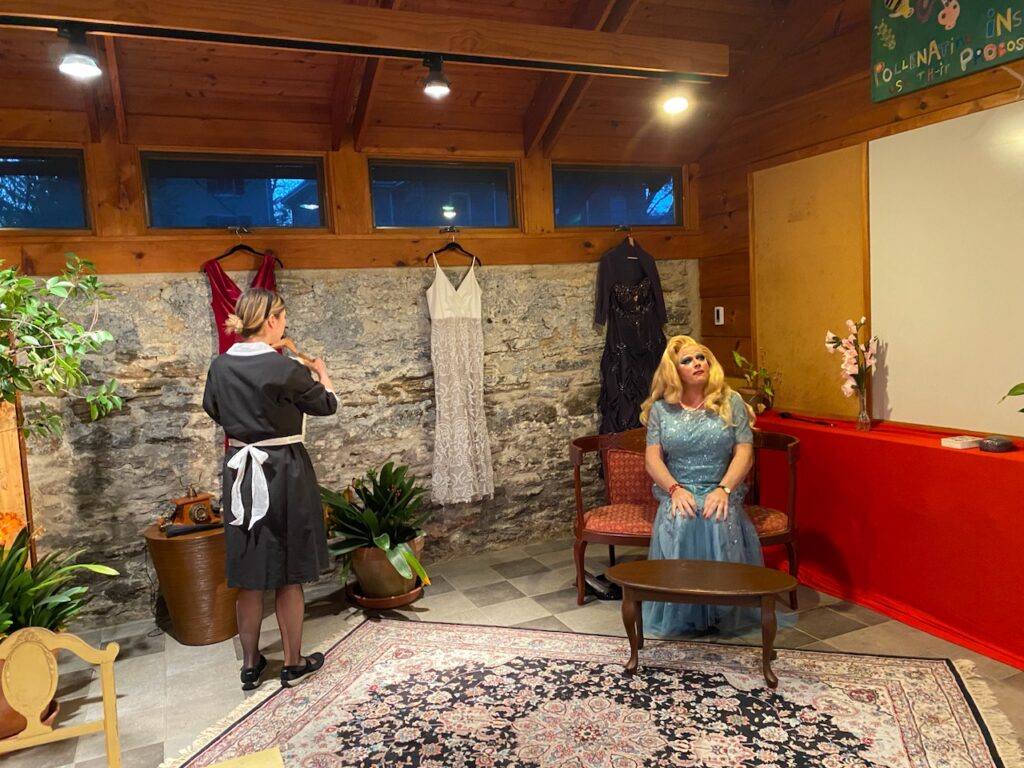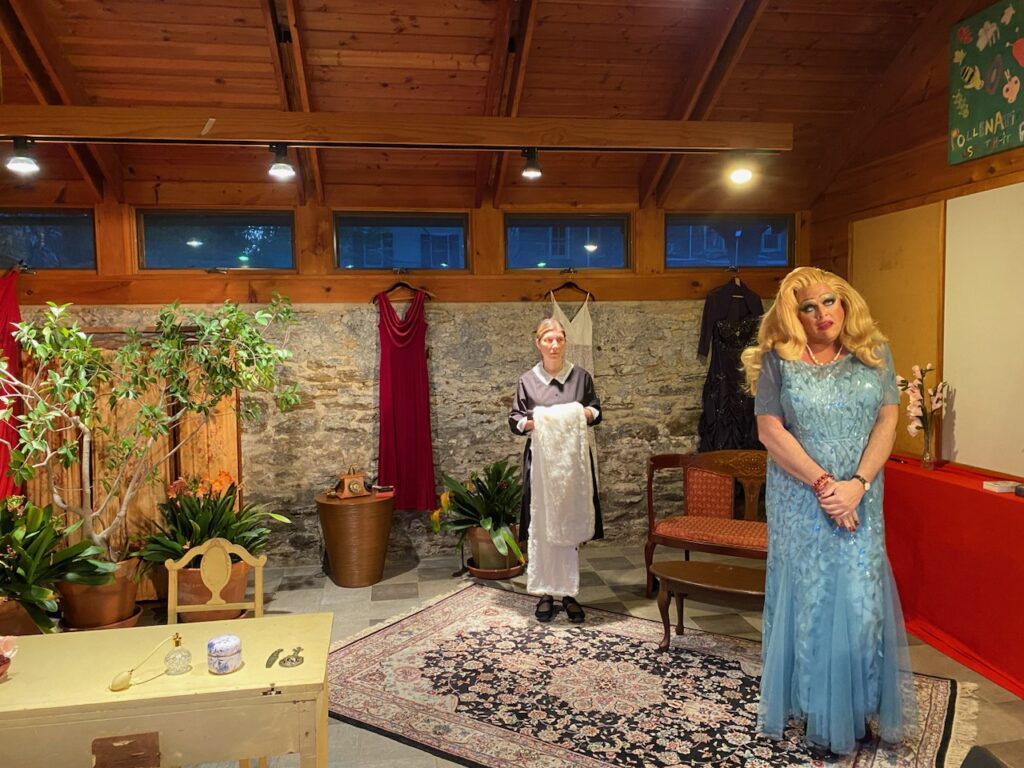-

Villanova University
From 2019 until 2021, I was a student at Villanova University getting my Master’s in Theatre and a Master’s of Public Administration certificate. Unfortunately, this was right as the pandemic began in 2020 and all my classes were made remote for months. Theatre classes, remote? Seems like a tough thing to do, but our class managed. I was able to put all my audio visual skills to the test and suddenly, I was performing in my office in front of a green screen with lighting and microphones instead of on a stage at the university. As the pandemic restrictions eased, we were able to meet in person eventually, socially distanced and masked of course! The inability to gather really put a damper on live theatre. Without the prospect of a paying audience, theatres typically cannot afford the rights to a work, and filming that piece for broadcast is usually forbidden or cost prohibitive. This meant only newly written or devised work could be performed effectively cancelling 2 seasons of programming, including 2 musicals. The first is now back on Broadway, Sondheim’s “Merrily We Roll Along” the second was Gershwin’s “Crazy for You” which has been rescheduled and is happening now in 2024. Despite the issues during the pandemic, I highly recommend this program, especially now with the new The John and Joan Mullen Center for the Performing Arts featuring 2 brand new, state of the art theaters! I have been lucky enough to have been asked back for 2 musicals as an alumni, easily making up for the missed opportunities due to the pandemic. For more information about this program, go here. To see what’s currently showing at Villanova Theatre, click here!

Pandemic Graduation 
-
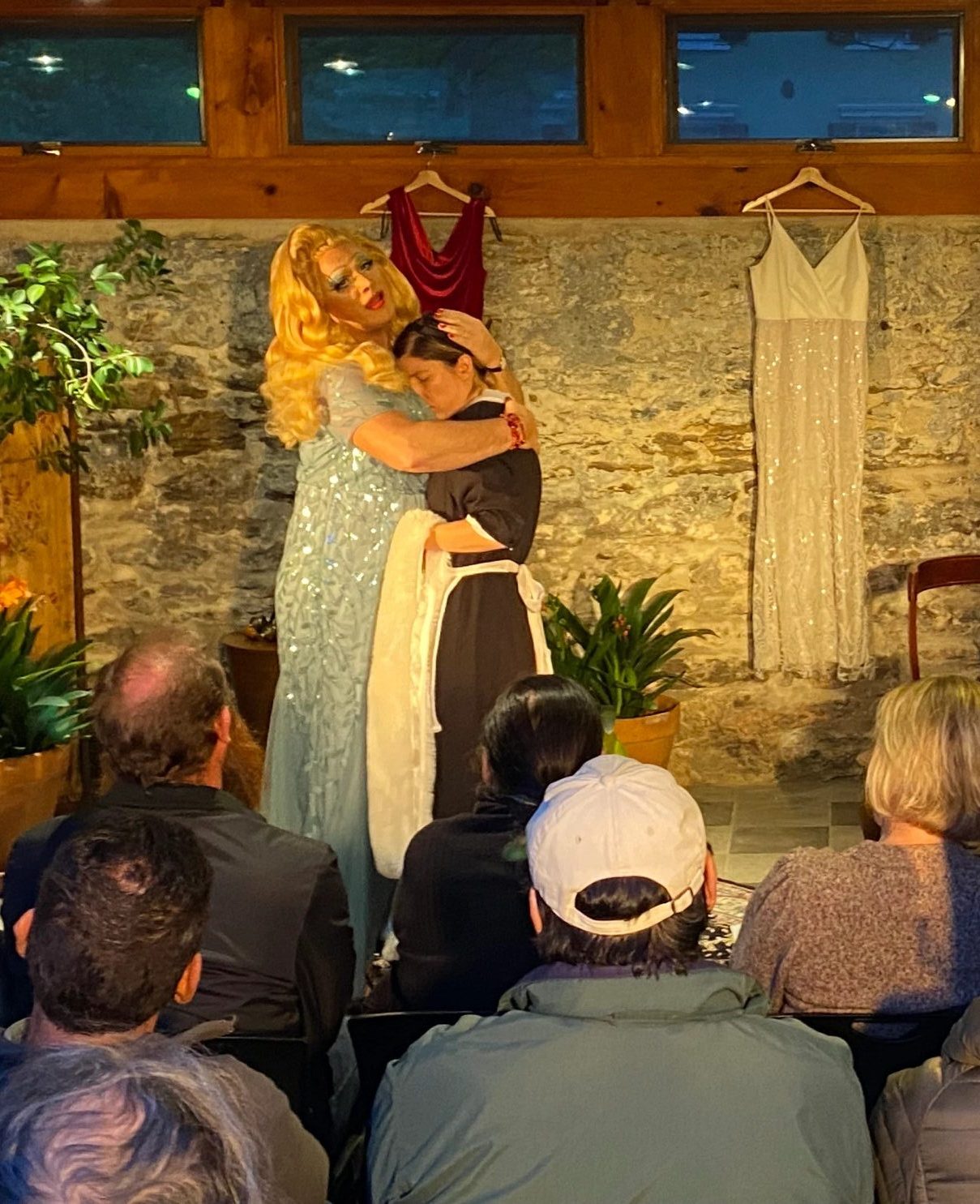
The Maids
In April of 2023 I was thrilled to play the role of Madame in “The Maids” by Jean Genet presented by Automatic Arts and The Kammerspiel.
This was very much a dream come true. I had the opportunity to do, what is often referred to as, “legit” theatre, in full drag. After many years of performing in drag in bars, very late at night, for often intoxicated patrons, with lines that I barely learned, I was finally able to perform in drag and get to bed at a reasonable hour! I suppose all those late nights at the bar have paid off.
Seriously, though, this was a great play to feature a drag queen. There is a lot to bit off in terms of character development and the power dynamics between those characters and they get lost between fantasy and reality. In fact, this would have been a great grad school thesis, and during the process, I truly tried to give it as much attention and thought as I would a thesis. Below is a little something I wrote as part of the program notes. Here I take a brief, but deeper dive into the inner working of “The Maids.”
Drag and Genet
Jean Genet’s The Maids follows two maids, Solange and Claire, as they fantasize about murdering their employer, Madame. The play is celebrated for its searing critique of bourgeois society and its exploration of themes such as power dynamics, identity, and the intersection of fantasy and reality. The play’s exploration of power dynamics between oppressors and oppressed is mirrored in the world of drag performance, where drag queens and kings use clothing and performance to subvert dominant cultural narratives about gender identity.
The maids take turns playing the role of Madame, trying on her power and status by wearing her dresses and makeup. It becomes apparent that Madame’s clothing and “finery” play a significant role in creating her power and formidability. Drag performers also do this by using clothing and makeup to create powerful and over the top personas. Indeed, the desire to stand out and find power through formidability is often the driving force behind many people’s decision to perform in drag.
Genet’s exploration of power and oppression also resonates with the art of drag because performers often face discrimination and marginalization similar to the maids. Drag performers use clothing and performance to challenge and subvert dominant cultural narratives about gender and class, which is risky business. On stage, a drag queen can become anybody through the power of makeup and costumes. Off stage, a drag queen must contend with a world that does not necessarily value their personhood outside of their performance. Just as the maids cannot easily escape their oppression, drag performers struggle to survive in a culture built on oppressing anyone who deviates from the current cultural norms.
The Maids is also notable for its exploration of the interplay between fantasy and reality, as the maids’ murderous daydreams begin to seep into their interactions with Madame, leading to a sense of ambiguity and confusion. Similarly, the art of drag relies heavily on the idea of blurring boundaries, especially those related to gender. Drag performers often use their persona as a means of expressing aspects of themselves that they feel constrained to hide in their daily lives. In some cases, the drag persona is a wholly separate entity, existing apart from the performer’s off-stage identity, while other times, the drag persona is an extension of one’s identity.
The Maids highlights the ways in which power can be used to dominate and oppress others, as Madame exploits her maids for her own gain. This critique of power structures is echoed in many drag performances, which challenge and subvert dominant cultural narratives about gender and class.
For more information about “The Maids” click here to go to The Kammerspiel
